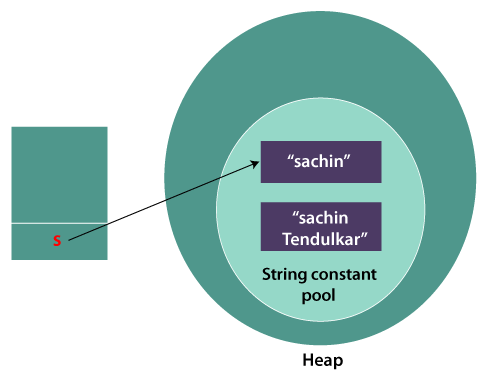What Is Immutable Strings and Just How It Functions
In the realm of programs, understanding the principle of immutable strings is critical for developing safe and robust applications. Unalterable strings refer to strings that can not be altered after they are created, guaranteeing information honesty and predictability within the code.
The Fundamentals of Immutable Strings
Immutable strings, as an essential concept in shows, are character series that can not be altered once they are produced. This implies that as soon as a string is designated a value, that worth can not be changed. In languages like Python and Java, strings are unalterable objects, causing numerous implications in regards to memory management and data stability.
One of the vital benefits of immutable strings is that they offer a complacency in data control. Because the content of an unalterable string can not be customized, it makes certain that the original data stays undamaged, reducing the danger of unexpected changes during program implementation (Why are strings immutable in Java?). This property likewise streamlines debugging procedures, as programmers can trust that when a string is specified, its worth will certainly not be inadvertently altered
In addition, immutable strings help with efficient memory usage. When a brand-new string is developed based upon an existing one, as opposed to modifying the initial string, the brand-new worth is stored independently. This technique enhances performance by lowering memory fragmentation and simplifying memory appropriation procedures. On the whole, understanding the fundamentals of unalterable strings is vital for understanding programming concepts and enhancing code efficiency.
Benefits of Immutable Strings
Building upon the security and effectiveness benefits of unalterable strings, their benefits reach enhancing code reliability and simplifying simultaneous programs tasks. By being unalterable, strings can not be modified after creation, which gets rid of the danger of unexpected modifications in the data they store. This intrinsic immutability makes sure that once a string is developed, its worth stays consistent throughout the program's implementation, reducing the opportunities of bugs caused by unexpected changes.
Additionally, immutable strings add to code reliability by making it simpler to reason concerning the state of a program. Since strings can not be transformed, designers can trust that a string will constantly hold the very same value, streamlining debugging and upkeep initiatives. This predictability brings about much more steady and reputable codebases.

Execution in Programs Languages
Within various programs languages, the unification of unalterable strings is a fundamental element that impacts just how information is taken care of and controlled within code frameworks. The application of immutable strings differs across various programs languages, with each language supplying its own systems to support this idea.

On the other hand, languages like C and C++ do not have integrated support for unalterable strings. Programmers in these languages should by hand carry out immutability by imposing rules within their code to avoid straight adjustments to string things.
Ideal Practices for Dealing With Immutable Strings
When managing immutable strings in programming languages like Java and Python, adhering to finest methods guarantees protected and efficient information control. Among the crucial best practices is to make use of StringBuilder or StringBuffer rather of straight controling strings, particularly when managing extensive concatenation procedures. These classes offer mutable choices for string control, aiding to prevent unnecessary memory allowances and enhancing efficiency.
Furthermore, when functioning with sensitive data such as passwords or API tricks, it is critical to avoid saving them as plain text in immutable strings. Making use of safe and secure storage mechanisms like char arrays or specialized libraries for handling sensitive information aids mitigate safety and security risks associated with unalterable strings.
Real-world Applications and Instances
Exploring sensible executions of immutable strings in various sectors exposes their significant effect on information integrity and system reliability. In the medical care field, immutable strings play a crucial role in guaranteeing the protection and confidentiality of client information. By stopping unauthorized alterations to delicate information such as clinical records and prescriptions, unalterable strings aid preserve conformity with strict personal privacy laws like HIPAA.
Banks additionally benefit from the immutable nature of strings to improve the protection of customer data and transaction records. Immutable strings aid avoid fraudulence and unapproved modifications to economic info, giving a durable defense versus cyber dangers and ensuring the trust and confidence of clients.

Verdict
To conclude, immutable strings are taken care of and stable sequences of characters that supply advantages such as thread security and boosted efficiency in shows. They are implemented in various programs languages to guarantee information stability and safety. Ideal techniques for functioning with immutable strings include staying clear of straight adjustments and making use of approaches that return brand-new string items. Real-world applications of immutable strings include data security, caching, and string adjustment jobs.
Immutable strings refer to strings that can not be changed after they are developed, guaranteeing information honesty and predictability within the code. When a new string is produced based on an existing one, instead than changing the original string, the new value is stored separately.In languages like Java and Python, strings are unalterable by default, indicating that when a string item is produced, its worth can not visit this web-site be altered - Why are strings immutable in Java?. Finest techniques for functioning with unalterable strings include staying clear of straight modifications and utilizing methods that return new string objects. Real-world applications of unalterable strings consist of data security, caching, and string manipulation jobs
Comments on “Why Are Strings Immutable in Java? Key Reasons and Advantages Discussed”